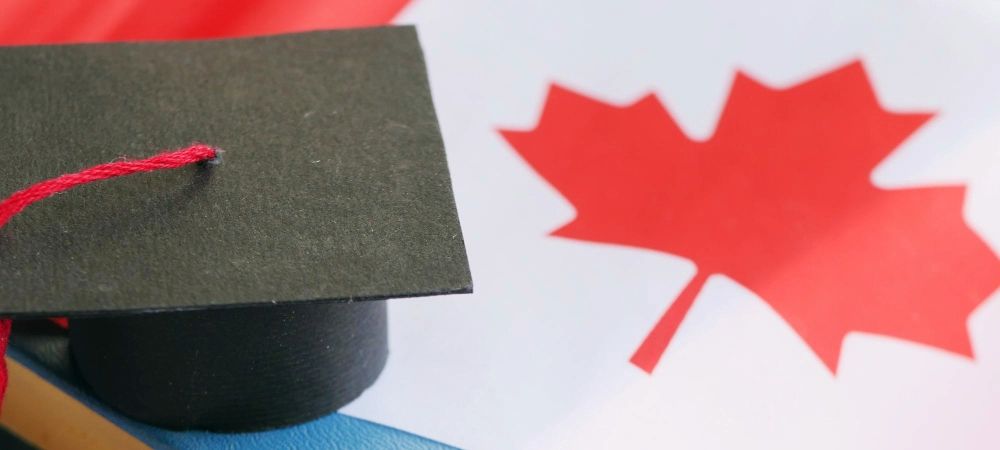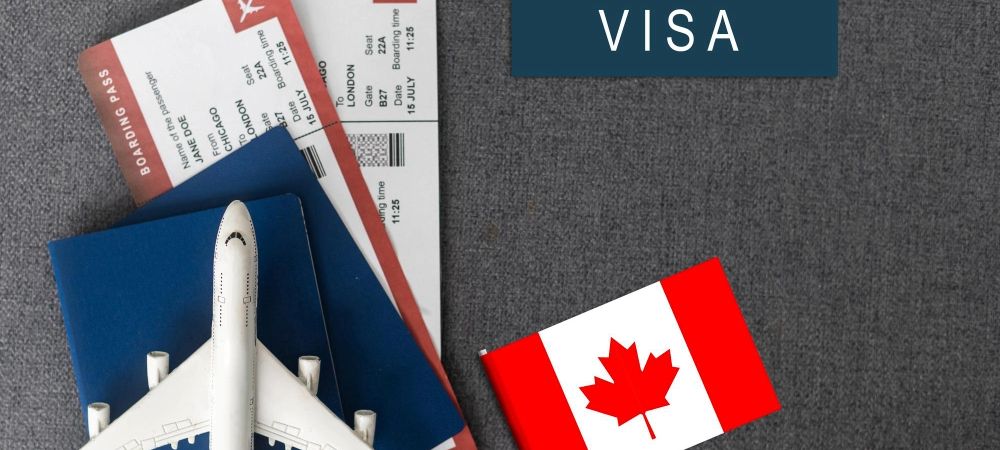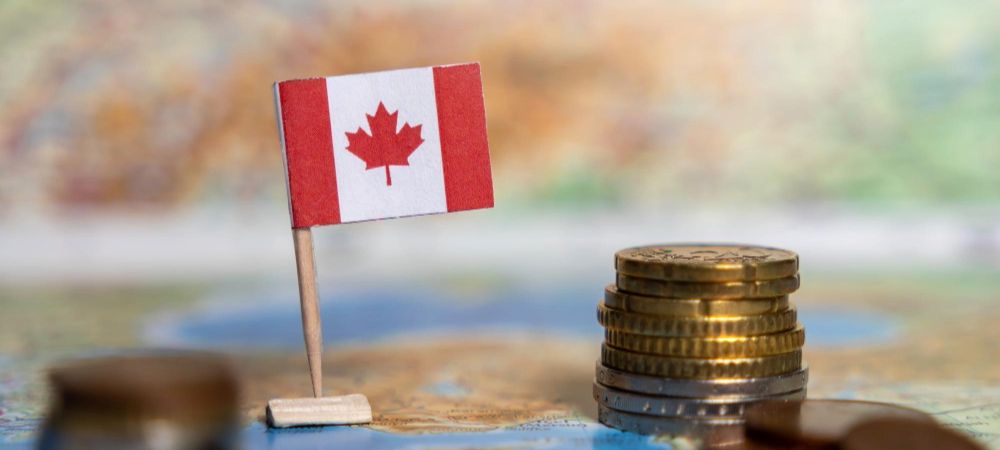Ready to study in Canada from Nepal? We will guide you through the whole process, whether it be admission, scholarships, universities, or anything else you may need!


Canada is one of the most popular destinations chosen by international students for studying abroad. Studying in Canada provides access to expert professors and a multicultural environment that enhances the learning experience. Canada also has top institutions like the University of Toronto, McGill University, the University of British Columbia, etc., that are globally known for their academic excellence and innovative research facilities. Studying at such universities will enable you to implement your knowledge in real life and help you compete better in the global market.
Canada is known for its safety, high living standards, low crime rates, and stable governance. According to the Global Peace Index, Canada is ranked at number 11 for being the most peaceful nation worldwide. Students can feel safe while living in university towns, using public transport, and going for nighttime walks.
According to the Government of Canada’s immigration rules, international students are allowed to work while studying, with up to 24 hours per week off campus during regular academic sessions and full-time during scheduled college breaks. Earning between $13.60 - $16.77 per hour, students can cover living expenses, gain work experience, and build valuable connections.
Canada is the best destination to get permanent residency (PR) in a short period of time. As of 2024, over 200k students have obtained Canadian citizenship in less than two years. You must fit into categories like the Canadian Experience Class, the Federal Skilled Worker Program, and the Provincial Nominee Program to qualify for permanent residency.
Canada attracts international students with its breathtaking natural beauty and high quality of life. According to Forbes magazine, Canada ranks in the top 5 countries for the quality of life, with excellent healthcare and public services. Additionally, Canada is also popular for its iconic landmarks like Niagara Falls, where millions of people visit every year to enjoy the stunning waterfall. Canada is also home to beautiful lakes, mountains, and woodlands where students can go skiing, hiking, or many other outdoor activities.
Canada offers relatively low tuition fees for international students compared to other popular study destinations (mostly English-speaking countries). Canada also provides numerous scholarships and financial aid options to support international students. This helps students to reduce their financial burden when studying.
Canada is a land of diversity and an inclusive society. It welcomes people of all nationalities, religions, races, and cultures, promoting a multicultural environment. Canadians are very friendly and welcoming, which helps international students feel comfortable and settle down easily.
International students can find excellent post-study work opportunities in Canada. Students who have completed their studies at a Designated Learning Institution (DLI) can apply for a post-graduation work permit (PGWP). This allowed students to work in Canada for up to three years. It is also one of the major paths for international students to get work experience that could lead to permanent residency.

If you are planning to study abroad in Canada from Nepal, you should first understand the requirements and steps involved in the application process. Here is a list of requirements you must know:
Note: These are the basic documents needed to study in Canada; additional documents may be required based on the institution and type of programs you are applying for. Please speak with our Search Education counsellor for detailed information.

Canada is one of the popular destinations chosen by overseas students for studying abroad. However, studying in Canada can be costly, especially for middle-class individuals. Thus, Canadian universities have considered this and thus provide scholarship and funding opportunities to those deserving, talented students.
Nepali students can apply for scholarships at the undergraduate, master's, and doctoral levels. These scholarships are provided by the Canadian government, universities, and other institutions to support international students in their academic journey.
Here are some popular scholarships in Canada for abroad students:
The Government of Canada provides a wide range of scholarships to foreign students, such as the Canada Graduate Scholarships, IDRC Research Awards, Vanier Canada Graduate Scholarships, Ontario Trillium Scholarship (OTS), Quebec Provincial Government Scholarship, and Banting Postdoctoral Fellowships. Their main purpose is to aid in financing tuition fees, living costs, and travel, thus making foreign students' academic pursuits possible.
Non-governmental scholarships in Canada are given out by private foundations, companies, and charitable groups to assist students in completing a degree. These scholarships are given out on different criteria, which can range from merit to need or research field. Some of the most notable programs include Surfshark Privacy and Security Scholarship, Canada Memorial Scholarship, and Anne Vallee Ecological Fund.
Many Canadian schools award international students who have academic merit but need financing. These scholarships are normally given on a variety of factors, such as academic performance, leadership skills, community service, or studying in a specific field. For instance, the University of Calgary's International Entrance Scholarship provides a maximum of CAD $60,000 for four years to undergraduate students with excellent academic records.
Canada offers three major intakes for international students: Fall, Winter, and Summer.
| Intakes | Application Deadline | Program Availability |
| Fall Intake (September Intake) | December – March | Wide range of programs across various disciplines |
| Winter Intake (January Intake) | September - November | Limited programs; fewer courses available |
| Summer Intake (May Intake) | January - February | Primarily short-term courses, diplomas, or specialized certifications |

Studying in Canada is an exciting opportunity for Nepali students. The Canadian student visa process is an important step to make your dream come true. While it may seem challenging, with the right guidance and careful planning, you can complete each step easily.
Here is a step-by-step, easy guide on how to apply for a Canadian student visa.
Note: Some institutions provide the Provincial Attestation Letter (PAL) along with the offer letter, while others issue it after the initial deposit has been made.
Most of the students will feel overwhelmed while submitting the visa documents, but don’t worry, with the right guidance, every step will be manageable. At Search Education, we have helped every Nepali student with the Canada student visa documentation procedure, ensuring that you meet all the requirements to study in Canada.

The cost of studying in Canada for Nepali students varies based on the institution, course, location, and scholarships. After +2, Nepali students can choose a 2-year Diploma, 3-year Advanced Diploma, or 4-year bachelor's degree. Tuition fees range from CAD 15,000 to CAD 19,000 annually, with some institutions costing more. After a Bachelor's, students can opt for a 1-year PG diploma, a 2-year PG diploma, or a 1- to 2-year master's degree. PG fees are like Bachelor's or Diploma costs, while master's degrees are more expensive.
Education Types | Tuition fees in CAD |
PG Diploma, Diploma & Certificate Program | CAD 15,000 – 25,000 per year |
Undergraduate programs / bachelor's degree | CAD 15,000 – 30,000 per year |
Graduate programs / master's degree | CAD 17,000 – 35,000 per year |
PhD Courses | CAD 8,000 - 20,000 per year |
According to Immigration, Refugees and Citizenship Canada (IRCC), for study permit applications, a single applicant needs at least CAD 20,635 per year (excluding tuition) as proof of funds to support themselves. Other additional expenses depend on factors such as university location, accommodation, and personal spending habits. On average, Nepali students spend between CAD 1,200 and CAD 3,000 per month for all expenses, including rent, food, transportation, and health insurance.
Here is the table that includes some of the major expenses that a student spends while living in Canada:
Expenses Type | Average Cost in CAD |
Accommodation | $400 - $1500 per month |
Transportation | $80 - $120 per month |
Food | $200 - $600 per month |
Insurance | $50 - $75 per month |
Books and other materials | $50 - $200 per month |
Internet | $50 - $100 per month |
Phone Subscription | $30 - $50 per month |
Laundry | $20 - $30 per month |
Entertainment | $100 - $120 per month |
Weekend Activities | $50 - $100 per month |
Groceries | $200 - $400 per month |

Canada is home to nearly 223 public and private universities, and 213 public colleges and institutes, offering a wide range of programs tailored to international students. Whether you're aiming for a diploma, undergraduate, postgraduate, or PhD-level degree, Canadian institutions provide opportunities to match your academic and career goals.
Here is the list of courses you may choose to study in Canada:
Canada is home to many renowned universities like Toronto, McGill and the British Columbia. These universities are globally known for their world-class education system, skilled professors and great research facilities.
Here is the list of top universities based on QS World University Rankings 2025:
Universities | 2025 Ranking |
University of Toronto | 25 |
McGill University | 29 |
University of British Columbia | 38 |
University of Alberta | 96 |
University of Waterloo | 115 |
Western University | 120 |
Université de Montréal | 159 |
McMaster University | 176 |
University of Ottawa | 189 |
Queen's University at Kingston | 193 |

Canada is a top choice for international students because of its quality education and promising job opportunities. On average, students spend about $12,000 CAD per year on living expenses. The job market is also growing—over 76,000 jobs were added in January 2025, bringing unemployment down to 6.6%. Despite global economic recessions, the tech industry has witnessed 11% growth in employment since 2020, and considering an aging population, the healthcare industry is expected to expand even more.
You should score at least 2.8 GPA or 60% to study in Canada. Some institutions may accept lower than this, but you must show your expertise in other core areas like English Proficiency test (IELTS, PTE, TOEFL), standardized tests (such as GRE/GMAT for Masters), research papers or any other extracurricular activities.
The total cost of studying in Canada for Nepalese students are as follows:
Education Types | Tuition fees in CAD |
PG Diploma, Diploma & Certificate Program | CAD 12,000 – 25,000 per year |
Undergraduate programs / bachelor's degree | CAD 15,000 – 30,000 per year |
Graduate programs / master's degree | CAD 17,000 – 35,000 per year |
PhD Courses | CAD 8,000 - 20,000 per year |
The visa fee for a Nepal to Canada application is as follows:
For dependents, an additional CAD 170 will be charged.
Applicants must schedule a biometric appointment, which can be completed at VFS Global Nepal at Chhaya Center, Thamel.
Additionally, medical examinations can be completed through TMMC Nepal.
Yes, Canada is one of the best destinations for studying abroad. International students choose Canada for its high-quality education, welcoming environment, permanent residency (PR) and post-study work opportunities.
To apply for a Canada student visa from Nepal, you generally need to show proof of sufficient funds to cover your tuition fees and living expenses for at least one year.
So, the total required bank balance would be around 35,635 CAD (15,000 CAD for tuition + 20,635 CAD for living expenses).
The Canada visa success rate for Nepalese students had risen to 41% compared to previous years. However, you can increase your visa success rate by making your document strong. If you need any guidance for documentation, Search Education is here to ease your process.
Nepali students can carry up to USD 2,000 when traveling to Canada from Nepal. If you are carrying more than USD 2,000, you must inform the customs officers before leaving Nepal.
The minimum percentage or grade required to study in Canada after 12th depends upon the course you have chosen. Some universities may accept students with 50% marks in 12th grade but scoring at least 70% or higher is preferred to get admission into top universities.
Yes, most Canadian universities require an IELTS score to confirm English proficiency for undergraduate or postgraduate studies. Alternatively, the PTE is also accepted by many universities as proof of your English language skills.
With a 24-hour-per-week limit, international students usually earn between CAD 13 to 25 per hour, or CAD 1,000-1,440 monthly on regular semesters. However, it totally depends on the location, job type, and experience. During semester breaks, you can work full-time and even increase your income.
Part time job options for international students include:
It is easier for students to find part-time jobs, but it mostly depends upon where you live and what kind of job you are looking for. Bigger cities have more job opportunities in places like stores, restaurants, or on campus. If you have strong connections and good communication skills, then it will be easy for you to land a job.
© 2025 SearchEducation | All Rights Reserved.